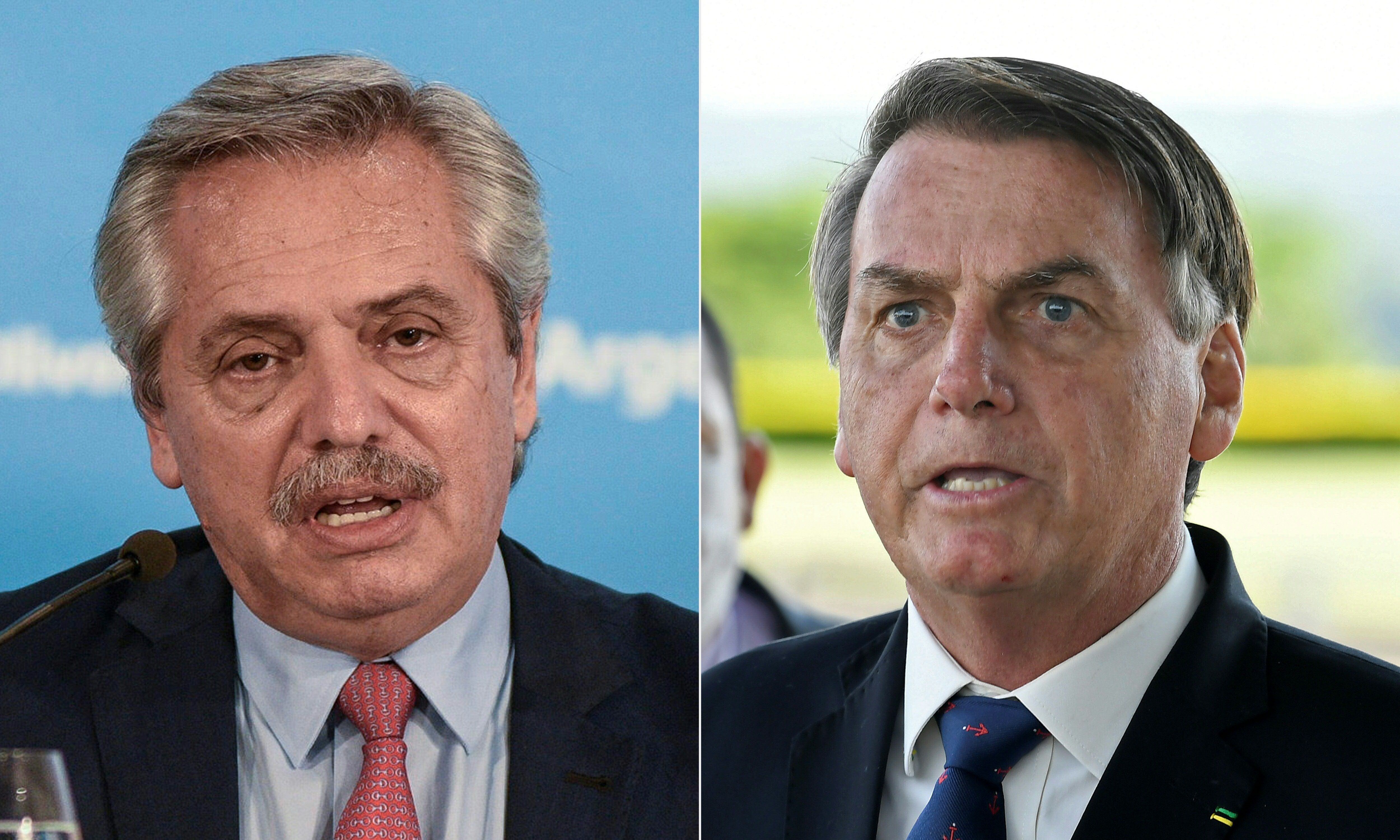Before becoming elected president of Argentina, Javier Milei He said a lot of things during the campaign. Many. One of them aimed at nothing less than breaking relations with Brazil, as it did not accept having to dialogue and negotiate with a “communist and corrupt” country like Luiz Inácio Lula da Silvaone of the emblems of that South American progressivism that libertarians hate so much.
TO LOOK: Governance, the great challenge of the new Milei government in Argentina
But one thing is electoral verbiage and another, very different, is the reality that the next head of the Casa Rosada will have to face, something that can already be seen in the formation of his cabinet.
On the Brazilian side there is also not much enthusiasm. Last Tuesday, after Milei’s victory, Lula said: “We are experiencing a certain confusion in South America and we are going to have some political problems, but instead of complaining we have to be intelligent and try to resolve them”, in a clear allusion to the new situation: Argentina.
The two South American giants are not just neighbors, they are vital trading partners. Brazil is the main destination for Argentine exports and, after China, Brazil is the second origin of Argentine imports. Therefore, freezing relations for ideological reasons should not be on the table. For now, nothing has been said and it remains to be seen how the two leaders will behave from December 10th, when Milei will put on the presidential sash.
It is no secret that Lula’s close advisors helped Sergio Massa – the official candidate and also Argentine Economy Minister – in the electoral campaign, in a direct bet by the Brazilian president to have an ideological ally in the Casa Rosada, as is still the case with Alberto Fernández.
However, days before the second round and when the evolution of the polls was already known, Lula’s Government intensified contacts with Milei’s team, as revealed by the AFP agency.
“What we saw in the dialogue with Milei’s campaign emissaries is the opposite of what he said publicly. “They recognize the centrality of the relationship with Brazil and say that it will be closely cared for by their government,” said one of the Brazilian sources.
The tense relationship expected between Milei and Lula could be a comparison with what happened between the far right Jair Bolsonaro and Alberto Fernández. The former president of Brazil welcomed the arrival of the Peronist to the Argentine presidency in 2019 with a somber gesture and, in fact, the two barely spoke to each other during the period in which they served as heads of state.

However, what was seen on the surface was not the same as what was happening behind the scenes. Pragmatism prevailed and everyone expects the same path to continue, at least on the economic and commercial side.
“During Bolsonaro’s presidency there were no significant political or integration agreements with Argentina, but the investment and trade relationship remained strong, and the same is likely to happen now. Lula is a very pragmatic president and Milei, due to Argentina’s difficult economic situation, also has to force a strategic position from a commercial point of view. Argentina depends on Brazil and Brazil depends on Argentina. “Both are very important partners”, says Marina Pera, Brazilian political risk analyst at the consultancy Control Risks, to this newspaper.
Daniela Neves, Brazilian political scientist and professor at the Federal University of Latin American Integration (Unila), details that since Lula returned to power at the beginning of this year, the relationship between Brazil and Argentina has become closer, not just on a commercial level. , but also diplomatically. “Dialogue between the two countries will decrease with Milei’s victory, because he has a speech contrary to Lula’s, so in political terms there will be a distance.”

Pera agrees on this aspect: “We foresee a relationship between the two countries that will cool down from a diplomatic and political point of view. Lula and Milei may not get along because there is no ideological affinity, but in commercial terms, Brazil and Argentina will continue to be very important partners and have strategic interests, and this works independently of the two presidents.”
During the campaign, Milei also indicated that he would withdraw Argentina from Mercosur – formed by Brazil, Uruguay and Paraguay. However, the bloc is in negotiations to close a free trade agreement with the European Union, and Lula is being the main promoter so that the signature can be reached before the end of the year, even before the libertarian comes to power.
“Milei’s speech about Mercosur changed during the campaign. First he said he was going to take his country out of the bloc, saying there was no point, but then he moderated himself and started talking about the need to update Mercosur to make it more efficient”, explains Pera.
For the libertarian, Mercosur is a “defective customs union that harms good Argentines”.
In the midst of negotiations with the European Union, kicking the board would only bring headaches to the new president. The Argentine agro-export sector is one of the most interested in signing the agreement and will do everything possible to pressure the new government to approve it.
“It’s one thing for Milei to say he wants to leave Mercosur and another for him to leave,” says Neves. “And for this, the agreement with the European Union will be fundamental, especially if the signature is finalized before Milei takes office. If so, it will be more difficult for Argentina to leave the bloc.”
The two giants of South America know that they need each other, no matter if their presidents have opposing ideological positions. At the end of the day, business is business.
Source: Elcomercio
I am Jack Morton and I work in 24 News Recorder. I mostly cover world news and I have also authored 24 news recorder. I find this work highly interesting and it allows me to keep up with current events happening around the world.

:quality(75)/cloudfront-us-east-1.images.arcpublishing.com/elcomercio/YGBT5NRCHBFKZPYKH4FPTMYTPI.jpg)

:quality(75)/cloudfront-us-east-1.images.arcpublishing.com/elcomercio/XZDZYMH6IVC5PM755WVEKDFUWI.png)
:quality(75)/cloudfront-us-east-1.images.arcpublishing.com/elcomercio/Z7OEUU4X55EFRPVVUSSIQ4LAN4.jpg)
:quality(75)/cloudfront-us-east-1.images.arcpublishing.com/elcomercio/I7RTEOSUTNDDXN4WWB3YCINMGU.jpg)
:quality(75)/cloudfront-us-east-1.images.arcpublishing.com/elcomercio/COZWC2CYCVDHHP6WJYU3C64OVQ.jpg)
